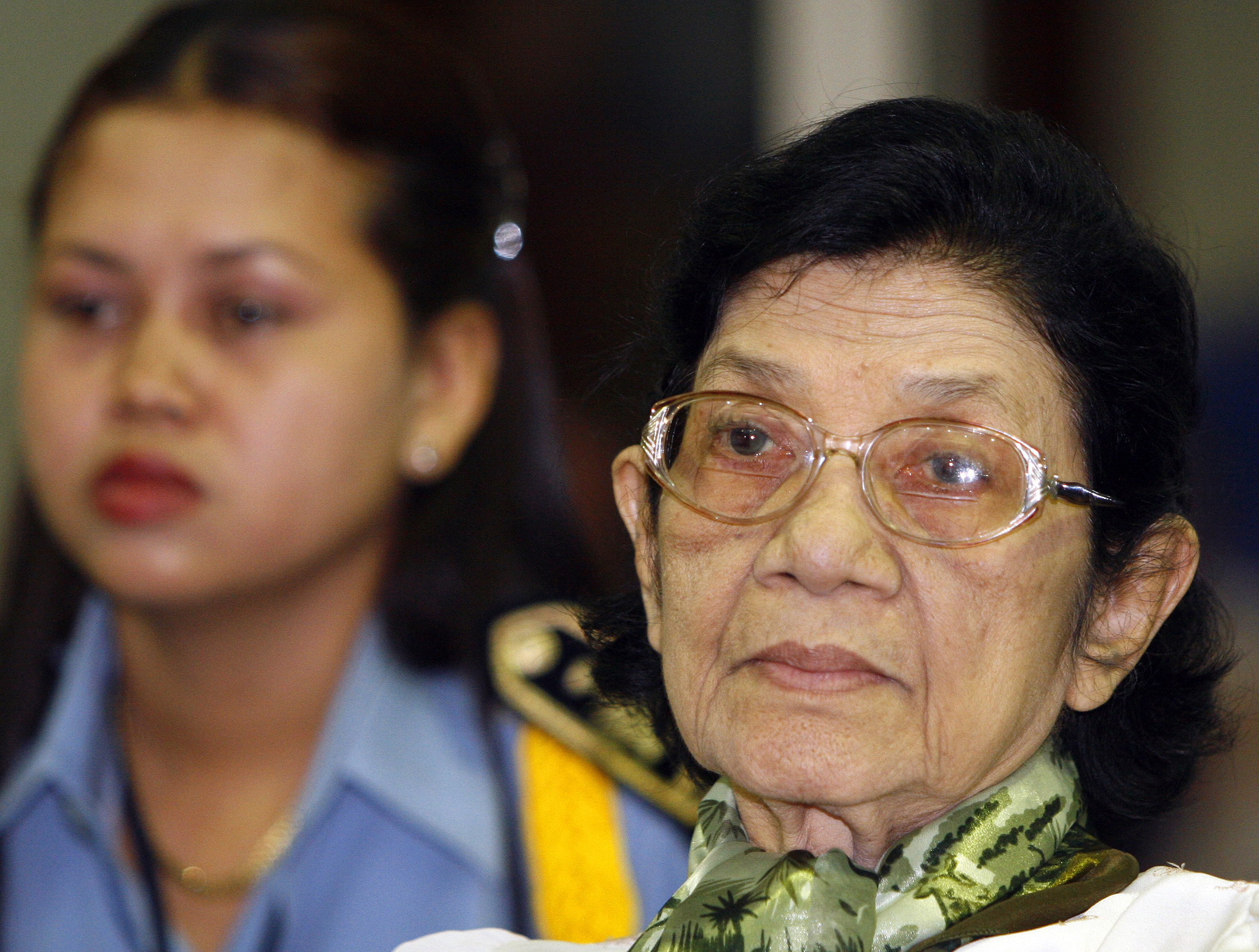
Ieng Thirith, the senior Khmer Rouge official hailed as the genocidal regime’s “First Lady,” died on Saturday in her home province near the Thai border.
Though her cause of death was not made public, Ieng Thirith, who was 83, had for many years suffered from progressive dementia. In 2011, her illness prompted a U.N.-backed tribunal to deem her unfit to stand trial for her role in the genocide.
The decision was controversial. From 1975 to 1979, the Khmer Rouge butchered at least 1.7 million Cambodians, or around a quarter of the country’s population, in the interest of creating what party literature called an “agrarian utopia.” The massacre, spearheaded by Khmer Rouge leader Pol Pot, was widespread to the point of seeming aimless. Speaking a foreign language or wearing eyeglasses — apparent markers of subversive intellectualism — could warrant one’s death. Those who were spared immediate execution were forced to leave their cities and towns and work under slavelike conditions at rural labor camps, where disease, malnutrition and death were rampant.
Ieng Thirith, who served as the regime’s Minister of Social Affairs, had a comfortable place within Pol Pot’s inner circle. Her husband, Ieng Sary, was Pol Pot’s Deputy Prime Minister and Minister of Foreign Affairs; her sister, Khieu Ponnary, was married to Brother No. 1 himself. The four belonged to — and ultimately led — the group of Paris-educated Cambodian Marxists who spearheaded the anti-imperial communist cause in Cambodia, seizing power in April 1975.
Ieng Thirith was the only woman to hold a senior Cabinet position in Pol Pot’s government. Because her sister allegedly suffered from mental-health issues, she would often stand by the Prime Minister’s side as a proxy for the First Lady at state events.
“Like many others of Cambodia’s ruling class, she presented herself as progressive but in fact was profoundly conservative and feudal in her behavior and lifestyle,” Ong Thong Hoeung, a Cambodian émigré who has testified in the war crimes tribunal, told the Cambodia Daily on Sunday. “She behaved like a queen during the Khmer Rouge regime.”
For many years following the genocide, Ieng Thirith and her husband lived comfortably in Phnom Penh under an amnesty agreement with the Cambodian government. In November 2007, however, the Extraordinary Chambers in the Courts of Cambodia (as the Khmer Rouge tribunal is officially known) charged her with, among other things, crimes against humanity and homicide.
She was among the handful of top Khmer Rouge officials to ultimately avoid prosecution. Her husband died in 2013 before the court could reach a verdict in his case. Pol Pot died under dubious circumstances in 1998, having never served time in prison for his political activity.
More Must-Reads From TIME
- The 100 Most Influential People of 2024
- Coco Gauff Is Playing for Herself Now
- Scenes From Pro-Palestinian Encampments Across U.S. Universities
- 6 Compliments That Land Every Time
- If You're Dating Right Now , You're Brave: Column
- The AI That Could Heal a Divided Internet
- Fallout Is a Brilliant Model for the Future of Video Game Adaptations
- Want Weekly Recs on What to Watch, Read, and More? Sign Up for Worth Your Time
Contact us at letters@time.com